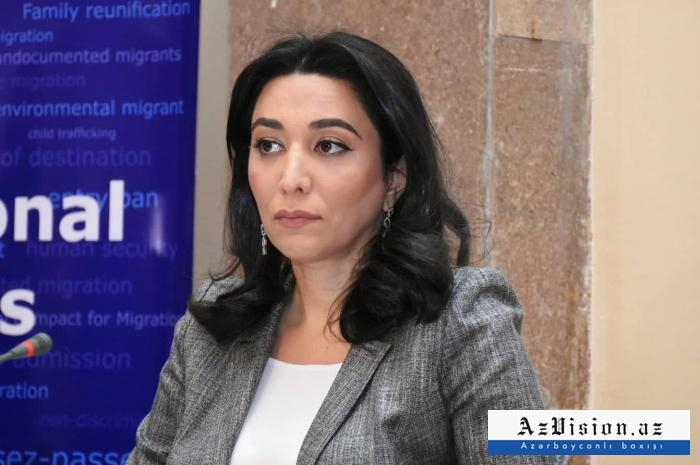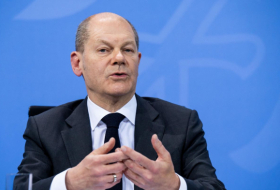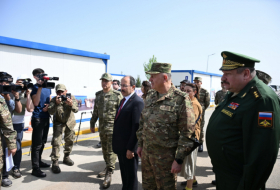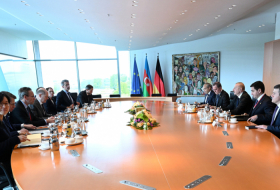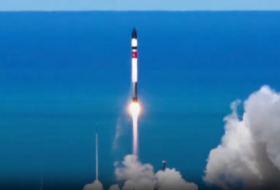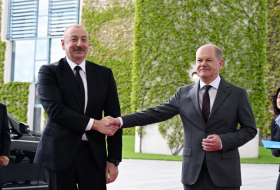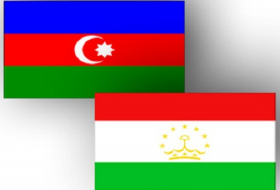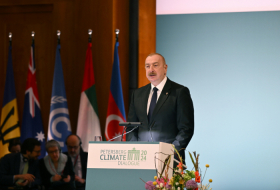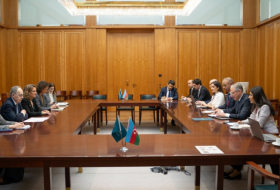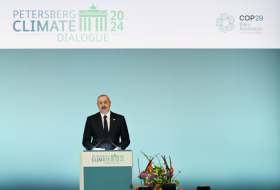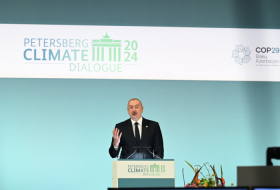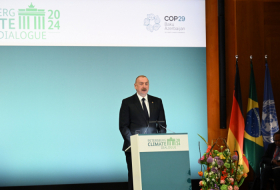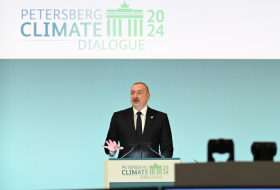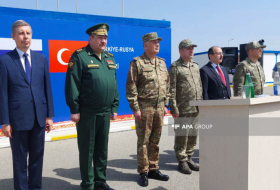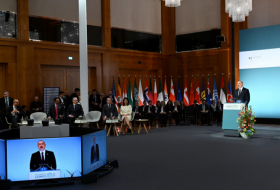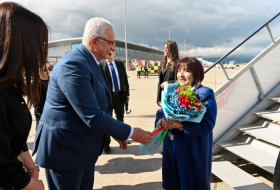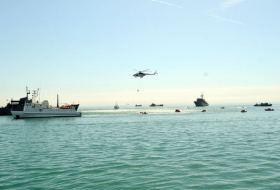The statement reads:
“This year we mark the 29th anniversary of Khojaly genocide. On the night from February 25 to 26, 1992, the units of the Armenian armed forces, Armenian terrorist groups in Nagorno-Karabakh and personnel of the 366th motorized infantry regiment of the former Soviet army deployed in Khankandi town of Azerbaijan committed an act of genocide in Khojaly town of Nagorno-Karabakh region of Azerbaijan. This heinous crime against humanity was organized by the then political leadership of the Republic of Armenia.
On this day 29 years ago, the town of Khojaly was besieged and attacked by heavy artillery with its civilian residents brutally murdered. People were not allowed to escape from the burning town; civilians were ambushed on the roads and in the woods and mercilessly slaughtered. This crime amounts to the most serious and severe violation of norms and principles of international law, as well as fundamental human rights. As a result of this horrific crime against humanity, 613 peaceful civilians of Azerbaijan, including 63 children, 106 women and 70 elderly people were murdered. At the same time, 487 civilians were seriously injured, and 1275 people were taken hostage. The fate of 150 hostages, including 68 women and 26 children, is still unknown. 56 people were killed with special cruelty, people’s skulls were skinned, various parts of bodies were cut off, their eyes were taken out, and pregnant women’s bellies were pierced with bayonets. Eight families were totally exterminated, 130 children lost one, whereas 25 children lost both parents.
The Khojaly tragedy is another horrible consequence of the policy of illegal occupation, ethnic cleansing and genocide perpetrated by the Armenian nationalists and their supporters against the Azerbaijani people. Other manifestation of this policy pursued by Armenia was ethnic cleansing committed against Azerbaijanis in early 1990s in Baganis Ayrim village of Gazakh district and Imarat Gharvand, Tugh, Selaketin, Khojavand, Karkijahan, Jamilli, Meshali, Akhullu, Nabilar, Hasanabad, Gaybali, Malibayli, Yukhari and Ashaghi Gushchular villages in Nagorno-Karabakh. In addition, during the occupation of Garadaghli village of Khojavand district and Aghdaban village of Kalbajar district, many civilians, including children, women, and the elderly, were tortured to death, dozens of civilians were taken hostage and went missing.
As a result of these heinous crimes against humanity committed by Armenia, the requirements of existing international documents in the field of protection of human rights and freedoms, especially of the 1949 Geneva Conventions, the Convention on the Prevention and Punishment of the Crime of Genocide (Genocide Convention), the Convention against Torture and Other Cruel, Inhuman or Degrading Treatment or Punishment, International Covenant on Civil and Political Rights, International Covenant on Economic, Social and Cultural Rights, International Convention on the Elimination of All Forms of Racial Discrimination, the Convention on the Rights of the Child and the Convention for the Protection of Human Rights and Fundamental Freedoms have been grossly violated.
According to the UN General Assembly Resolution 96 (I) of 11 December 1946 and Genocide Convention adopted by Resolution 260 (III) of 9 December 1948, the mass extermination of civilians in Khojaly on the basis of their ethnicity and committed with deliberate intent must be interpreted as genocide.
The Milli Majlis of the Republic of Azerbaijan gave its political and legal assessment to the Khojaly genocide in 1994, at the initiative of national leader Heydar Aliyev, after his return to power. Thus, the date of February 26 was declared “Day of the Khojaly Genocide” and the truth about the genocide was conveyed to the world countries and international community.
The international campaign “Justice for Khojaly!” initiated by the Vice-President of the Heydar Aliyev Foundation Leyla Aliyeva has played a special role in conveying the truth about the genocide to the world community, spreading the word on Armenian atrocities throughout the world.
The relevant documents adopted by the Parliaments of Mexico, Pakistan, the Czech Republic, Peru, Colombia, Panama, Honduras, Sudan, Guatemala and Djibouti have recognized mass killing committed in Khojaly as an act of genocide. Parliaments of Romania, Bosnia and Herzegovina, Serbia, Jordan, Slovenia, Scotland and Paraguay, as well as the executive and legislative bodies of 22 states of the United States of America have strongly condemned the Khojaly tragedy qualifying it as a massacre. The Organization of Islamic Cooperation recognized Armenia as an aggressor and the Khojaly tragedy as genocide.
Completely undermining the peace process and blocking any prospect for negotiated settlement as well as openly declaring its intention to occupy new Azerbaijani territories, Armenia violated the ceasefire in July and later in September 2020, attacking positions of the Azerbaijani Army and civilian settlements with the use of internationally prohibited weapons, including cluster munitions. As a result, 94 Azerbaijani civilians, including 12 children were killed and 414 civilians, including 50 children got wounded. More than 3410 houses, 120 multi-apartment residential buildings and 512 objects of public infrastructure, including numerous schools, hospitals, kindergartens were destroyed as a result of these attacks.
The counter-offensive operation launched on 27 September 2020 by the Azerbaijani army in order to stop the Armenian aggression, protect the lives of civilian population and put an end to long-lasting occupation, resulted in liberation of our lands that were under occupation for almost 30 years. Thus, in accordance with the relevant trilateral Statement of 10 November 2020, signed by leaders of Azerbaijan, Russian Federation and Armenia, hundreds of thousands of Azerbaijanis have been given the long-awaited opportunity to return to their ancestral lands and to restore their fundamental human rights.
The Khojaly genocide, which occurred in front of the eyes of the world at the end of the XX century, is a crime committed not only against Azerbaijani people, but also against the whole humanity. Unfortunately, despite the fact that 29 years have passed since this tragedy, the act of genocide in Khojaly has not yet received its due political and legal assessment on the part of international community and its perpetrators are still not brought to justice. Indifference and double standards applied to this heinous crime against humanity has bolstered in aggressor the sense of impunity that encouraged it to continue with the criminal policies of ethnic cleansing and illegal foreign occupation. Lack of adequate reaction by the world community to the Khojaly genocide is not only immoral but also unacceptable because it sets the ground for the repetition of this sort of crimes in the future.
I therefore call on the international organizations and individual states to recognize Khojaly massacre as an act of genocide and a crime against humanity so that its perpetrators could be brought to justice.”
This Statement is addressed to the UN Secretary-General, UN Security Council, UN Office of High Commissioner for Human Rights, UN Office of High Commissioner for Refugees, UN Human Rights Council, the United Nations Children’s Fund, the United Nations Educational, Scientific and Cultural Organization, European Union, Council of Europe, Organization for Security and Co-operation in Europe, International and European Ombudsman Institutions, Asian Ombudsman Association, Organization of Islamic Cooperation and the Ombudsman Association of its member states, Independent Permanent Human Rights Commission of the Organization of Islamic Cooperation, European Network of Ombudspersons for Children, International Peace Bureau, different ombudsmen and national human rights institutions, embassies of the Republic of Azerbaijan in foreign countries and the foreign embassies in Azerbaijan, as well as to the Azerbaijani Diasporas.
More about: Khojaly








